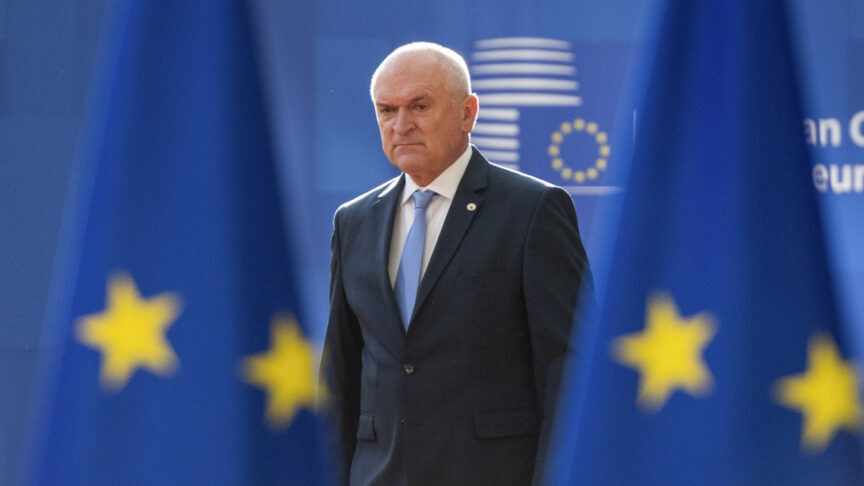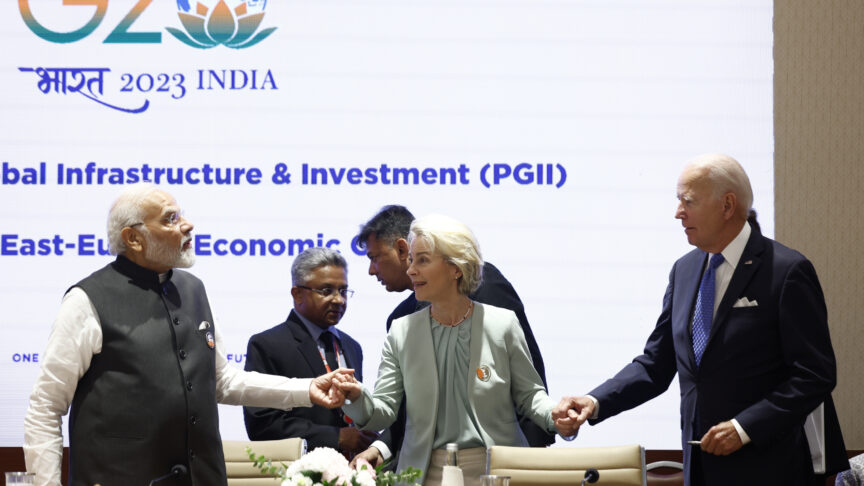Sudan, 2011
In January 2011 the people of South Sudan will vote on whether to secede from the North. Violence is expected to follow. The EU must start preparing now for an intervention in Sudan if it is to have any chance of being ready to help.
Accounts of EU policy-making often seem to be scripted by Franz Kafka. What
if Tom Clancy had a go instead? Here’s a sneak preview of his forthcoming
“Hour of the Baroness”:
Brussels:
02.30 Hours, 21 February 2011
Ashton entered the EU Situation Room. “What’s happening in South Sudan?” she demanded, aristocratically. Her aides
turned to the digital map on the wall.
“Fighting is spreading between ethnic groups — fast,” reported a
gravel-voiced aide. “The army has deserted the government. 200 UN peacekeepers
moved into break up clashes 70 miles from Juba,
but they’ve been cut off by militia forces.”
A bright red phone rang inches away from the Baroness. A staff officer
leapt to pick it up and listened for a second. “It’s Ban Ki-moon in New York,” she said a
moment later, tremulously. “He wants you to send a Battle Group to Juba.”
It doesn’t have the makings of a best-seller. But, leaving aside a digital
map here or there, something like this may happen early next year. In January
2011, the people of South Sudan should get a
chance to vote on whether to secede from the North. Almost all analysts expect
them to vote yes — and many expect a burst of violence to follow.
This nasty possibility has come onto the EU’s radar this
month with Sudan’s
— confused and controversial — elections. Watching the frictions around these
polls, a lot of Sudan
experts have asked whether next year’s referendum can pass off even fairly
peacefully.
Those who know South Sudan better are even
more worried. The region is plagued with ethnic tensions, cattle raiding and
corruption. There is no government structure to speak of. The local armed
forces, veterans of war against the north, are badly paid and violent.
Over 400 people have been killed in the region in 2010. Some US policy-makers are bracing themselves to
respond to meltdown in South Sudan — UN
officials are struggling to avert it. The EU needs to ensure that it’s also ready
to handle this looming explosion.
Ashton has got a taste of Sudan’s politics with this
year’s election. But if she wants an idea of how ugly things could get next
year, she should look back at the 2008 crisis in the Democratic Republic of
Congo, when UN forces were out-maneuvered by rebel groups. Ban Ki-moon appealed
for the support of a Battle Group. The European Council split on how to respond
(the Nordics wanted to deploy, but the UK didn’t) and didn’t act.
It was an embarrassment for the EU, although the UN and US found ways to
defuse the crisis. A very similar chain of events could happen in South Sudan. The UN has over 10,000 troops and police in
southern Sudan (as well as
over 20,000 more in Darfur) but it’s not clear
if they’ll react forcefully to a major breakdown next year. During previous
fighting, they’ve often arrived late on the scene. In an area with few
serviceable roads, their ability to take on well-armed local militias — which
are plentiful — is uncertain.
So while a breakdown in South Sudan
isn’t guaranteed in 2011, an emergency is not unlikely. The UN
could once again ask for the EU to send reinforcements. One potential positive
is that one of the two EU Battle Groups scheduled to be on standby in the first
half of 2011 is the Nordic one, led by Sweden. The Swedes used their EU
presidency to talk about how the Battle Groups should be used more. Their
chance may come soon.
Nobody can force the Swedes — or other EU contributors — to sign up to a
deployment before it’s requested. But if Baroness Ashton wants to
concentrate minds on what the EU might offer in a Sudanese crisis next year,
she should organize a detailed war game involving her team, UN officials and
Nordic planners to look at Sudanese options soon.
She could also request a small group of senior Europeans with knowledge of
peacekeeping — like Mark Malloch Brown and Jean-Marie Guéhenno, big names from
Kofi Annan’s days — to lead a quiet investigation into what the EU can do in Sudan.
Hopefully, they’ll find ways to head off a crisis in South Sudan. But if they can’t — and the odds are pretty
bad — they might at least prepare the terms for the EU to fight there.
This piece was first published by Global Europe.
Click here to hear Richard explain why the elections matter to the EU
The European Council on Foreign Relations does not take collective positions. ECFR publications only represent the views of their individual authors.


